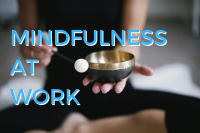
‘Working for women has allowed the vulnerable side of me to come out.’ Photograph: Radius Images/Alamy
Author: Graham Russell
I never intended it to happen, but as I look back over my portfolio career from hotel management to television art director I have worked almost entirely for women. And I prefer it that way.
My first real boss was Mr Pound, the general manager of a luxury London hotel. I don’t know why he hired me as a receptionist because I never got the impression he liked me.
“When I walk in that door I want you to stand up from your desk and greet me with ‘good morning Mr Pound’,” he told me one morning. As I was the only one he asked I made it my mission to avoid him and be busy with something when he came in. He set the tone of what I should expect a boss to be and sowed the seed that I might be better off without one.
Mrs May was my first female boss. I was 23 and had got a job in Bermuda, where she ran a small, expensive hotel with a rod of steel. I loved her. I was a front office trainee and felt like I was part of a family. It was the first time my boss really trusted me and because of that trust I wanted to prove myself even more. Asking for help felt comfortable and I was never thought less of because I didn’t know how to do something. She was all about the hotel being the best and you being your best.
“Are you collecting for your supper, Mr Phillips?” she said with a warm smile as we sat down for lunch one day. The restaurant manager and I both looked puzzled. We followed her gaze upwards to one of the hanging glass lampshades where half a dozen dead flies lay. Nothing would get past Mrs May. She had rigour and a heart. I felt for the first time in my career empowered and human.
“She modelled professionalism, focus and dedication”
Working for women has allowed the vulnerable side of me to come out. I was working as an art director on a stressful TV shoot when a manager from another department blamed me for something he had forgotten about, which had put the whole shoot in jeopardy. I went home that night frustrated and angry with injustice. The phone rang. It was my boss, Clare.
“I didn’t want to leave this until the morning,” she said, “because I could see you were upset but there is no need, because this is nothing to do with you. The producer is going to tell the manager he was out of order. I know how hard you have worked on this shoot and I just want to say how proud I am of you and how much your work is appreciated.” I burst into tears.
What would my boss think of me now? The embarrassment and shame. Men don’t cry – especially in the workplace. But that moment brought us closer as colleagues and human beings. We never spoke about it again; there was no need because the next day a bunch of flowers arrived at my home which affirmed the belief she had in me.
A few years later I witnessed a colleague experience a similar event. I was in an all-male team, where we puffed up our chests and gave each other an “I’m on your side” brotherly punch on the arm and rallied on. We never brought anyone to account, feelings were never mentioned, and it felt incomplete.
Research from Gallup backs up my experience. It concludes that female bosses are better at engaging employees and are more likely to encourage professional development and recognise or praise good work.
When I see the all-female teams in the Apprentice implode with back-biting, blame and bitchiness, or read women denigrating their female colleagues, it breaks my heart, because that has not been my experience with working with women in leadership.
Actually, it never occurred to me to think that I preferred working with “female” bosses. I just liked working with my boss – who behaved like a human, who behaved like me.
This article was originally published by Graham Russell on The Guardian, 4th November 2015. View original article.









Leave A Comment